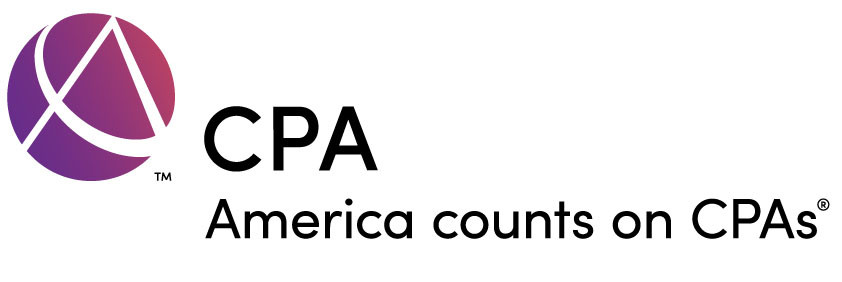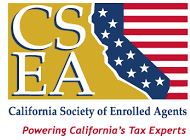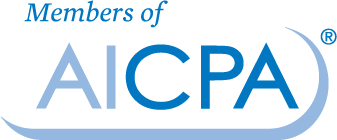Ready to Get Your Money Back From the IRS?
Bring us up to 3 years of past taxes and we’ll find ways to save you money, when we do we’ll help you file to get your money back from the IRS.

The rapid spread of the COVID-19 virus has begun to initiate an economic downturn and spurred a series of rapid responses on the part of the government. There have been so many proposals and versions floated regarding employee policies during the public health emergency that employers are understandably confused. Though there was an initial belief that the crisis would require businesses to make permanent reductions in their work force in order to survive, the final version of the Act may make these types of drastic actions unnecessary.
President Trump signed the new law on March 19th, and it will take effect on April 2nd. The economic stimulus measures and allowances that it makes will extend through December 31st, 2020. The Act is comprehensive and makes significant changes to previously existing rules regarding both the Family Medical Leave Act (FMLA) and Emergency Paid Sick Leave, as well as in other areas.
The focus of the changes contained in the new law is on companies with fewer than 500 employees. There is already discussion of exemptions for smaller businesses employing fewer than 50 people whose viability may be threatened by these measures. Also, the measures covered in the Act are not pertinent to companies that employ 500 or more employees. Action will likely follow with regard to companies of this size.
Emergency Paid Sick Leave Act
If your company employs fewer than 500 employees, the revised Emergency Paid Sick Leave Act makes them eligible for paid sick leave regardless of how long they have been employed by you.
If an employee of a company that employs fewer than 500 employees is unable to work in person or to telecommute for any of the following reasons, they qualify for paid sick leave:
The Act also includes a provision that an employee qualifies if the employee Is experiencing any other substantially similar condition specified by the Secretary of Health and Human Services in consultation with the Secretary of the Treasury and the Secretary of Labor.
Defining the Paid Sick Team Benefit
Under the Expanded FMLA Leave Act, employees of companies that employ fewer than 500 employees are able to take up to 12 weeks of leave if they can’t work (in person or via telework) because of their care responsibilities for a child or children under 18 years of age whose school or care facility has been shuttered as a result of COVID-19. The twelve-week period will provide compensation after the first ten unpaid days (though employees can use accrued paid sick or vacation time to provide payment for those ten days). The compensation will be calculated at two thirds of the employee’s normal wages for the number of hours that they were regularly scheduled to work, maxing out at $200 per day and a total of $10,000. The program will become available on April 2nd, and though the Act specifies that if the need for leave is anticipated the employee should provide their employer with “such notice of leave as is practicable,” advance notice is not required.
Employees who work for companies that employ 25 or more employees and who fear that they will lose their job or position as a result of taking advantage of this emergency FMLA act are entitled to return to the same or equivalent position once their leave is finished. Smaller companies (with fewer than 25 employees) are also covered by this rule unless the position no longer exists as a result of changes in economic or operating conditions related to/resulting from COVID-19 and the public health emergency. Even under these circumstances, the emergency Family Medical Leave Act requires employers to do their best to put the employee into an equivalent position, and failing that to offer an equivalent position to the employee should one become available for at least one year.
What This Means
To use a cliché that is being heard far too often in the news, we are in uncharted waters when it comes to COVID-19. Though we do not know what is going to happen, employers and employees can take some comfort in knowing that the Act passed by Congress and signed by the president is a strong measure that recognizes the real-world needs of both sides. States may provide their own additional benefits at some point, but what the federal government has done means that those with full-time jobs working for companies with less than 500 employees can have confidence that they will be paid both for up to 12 weeks of FMLA if their child’s school or care facility closes down as a result of COVID-19, with all but the first ten days paid at their full rate (but no more than $200 per day and $10,000 in total).
It all adds up to a maximum of no more than $12,000, representing a significant cushion as compared to what had previous been available. Similarly, full-time employees who can’t work as a result of the first three reasons that meet the Paid Sick Leave Act criteria can receive 80 hours of Federal Paid Sick Leave from their employer at either their full regular rate or a maximum of $511 per day and $5,110 in total. Employees are also permitted to use any paid sick leave, paid time off or paid vacation days that they have accrued, though they are not required to do so before taking advantage of the benefits of the federal emergency act.
The Emergency FMLA provisions will not be triggered by quarantine, although there may be traditional, unpaid FMLA leave rights available, as well as unemployment insurance.
Social Security Payroll Tax Credit
Employers who provide Emergency Paid Sick Leave benefits and Emergency Child Care Leave benefits will be given refundable tax credits against their Social Security taxes that will refund them fully for qualified sick leave and childcare leave wages under the Act. A similar credit is available for self-employed individuals against their self-employment tax.
Procedure for Claiming this Credit
Under addition guidance that will be later released, eligible employers who pay qualifying sick or childcare leave will be able to retain an amount of the payroll taxes equal to the amount of qualifying sick and childcare leave that they paid, rather than deposit them with the IRS.
The payroll taxes that are available for retention include:
Accelerated Payment - If there are not sufficient payroll taxes to cover the cost of qualified sick and childcare leave paid, employers will be able file a request for an accelerated payment from the IRS. The IRS expects to process these requests in two weeks or less. The details of this new, expedited procedure are forthcoming.
Example - If an eligible employer paid $5,000 in sick leave and is otherwise required to deposit $8,000 in payroll taxes, including taxes withheld from all its employees, the employer could use up to $5,000 of the $8,000 of taxes it was going to deposit for making qualified leave payments. The employer would only be required under the law to deposit the remaining $3,000 on its next regular deposit date.
Example - If an eligible employer paid $10,000 in sick leave and was required to deposit $8,000 in taxes, the employer could use the entire $8,000 of taxes in order to make qualified leave payments and file a request for an accelerated credit for the remaining $2,000.
Self-Employed Individuals - Equivalent childcare leave and sick leave credit amounts are available to self-employed individuals under similar circumstances. These credits will be claimed on their income tax return and will reduce estimated tax payments.
Small Business Exemption - Small businesses with fewer than 50 employees will be eligible for an exemption from the leave requirements relating to school closings or childcare unavailability where the requirements would jeopardize the ability of the business to continue. The exemption will be available on the basis of simple and clear criteria that make it available in circumstances involving jeopardy to the viability of an employer's business as a going concern. Labor will provide emergency guidance and rulemaking to clearly articulate this standard.
Non-Enforcement Period - The Labor Department will be issuing a temporary non-enforcement policy that provides a period of time for employers to come into compliance with the Act. Under this policy, Labor will not bring an enforcement action against any employer for violations of the Act so long as the employer has acted reasonably and in good faith to comply with the Act. Labor will instead focus on compliance assistance during the 30-day period.
Let us know if you have additional questions or need help in deciding what is the best option for you.
Sign up for our newsletter.
Bring us up to 3 years of past taxes and we’ll find ways to save you money, when we do we’ll help you file to get your money back from the IRS.
 |  |  |  |  |
See how we can help you today!